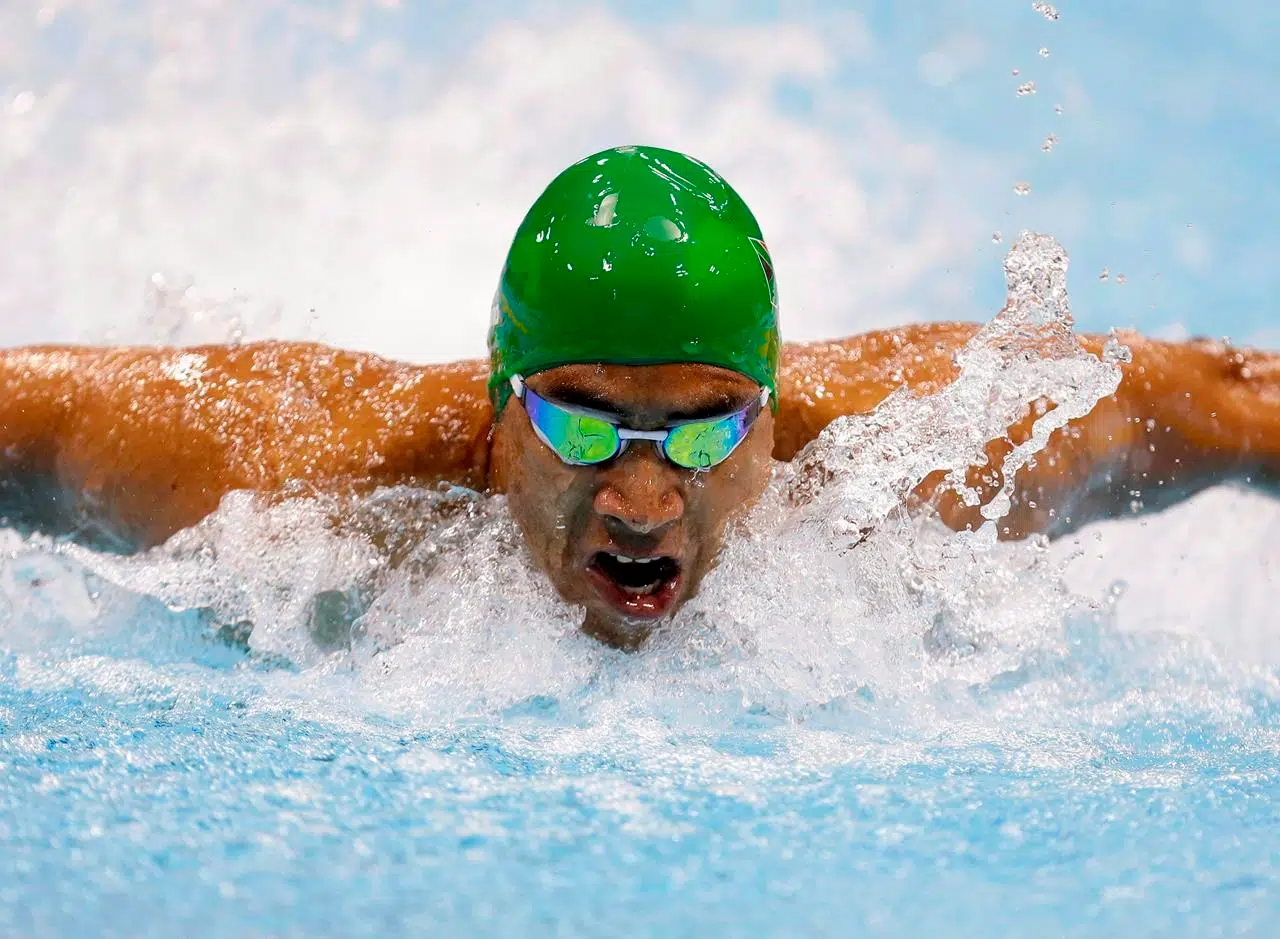
Paralympic swimmer Achmat Hassiem is a fierce ally of shark who took his leg
RIO DE JANEIRO — Before Achmat Hassiem hops onto the Paralympic starting blocks in Rio, he’ll close his eyes and think of Scarlet.
She’s the 4.7-metre great white shark that took his leg but not his dreams, and launched him on an illustrious career path that earned him an award from the United Nations.
“It’s my little way to get my adrenalin pumping. When I get behind the blocks, I imagine I’m in the ocean, and this massive great white is in the water, and she’s saying ‘Hey Achmat, I’m right behind you. I’m coming for you,’” the South African says of the great beast he named Scarlet — more out of reverence than rage.
“Then I swim as hard as I can to get away from her. Hopefully I can get away from her at gold-medal pace.”


